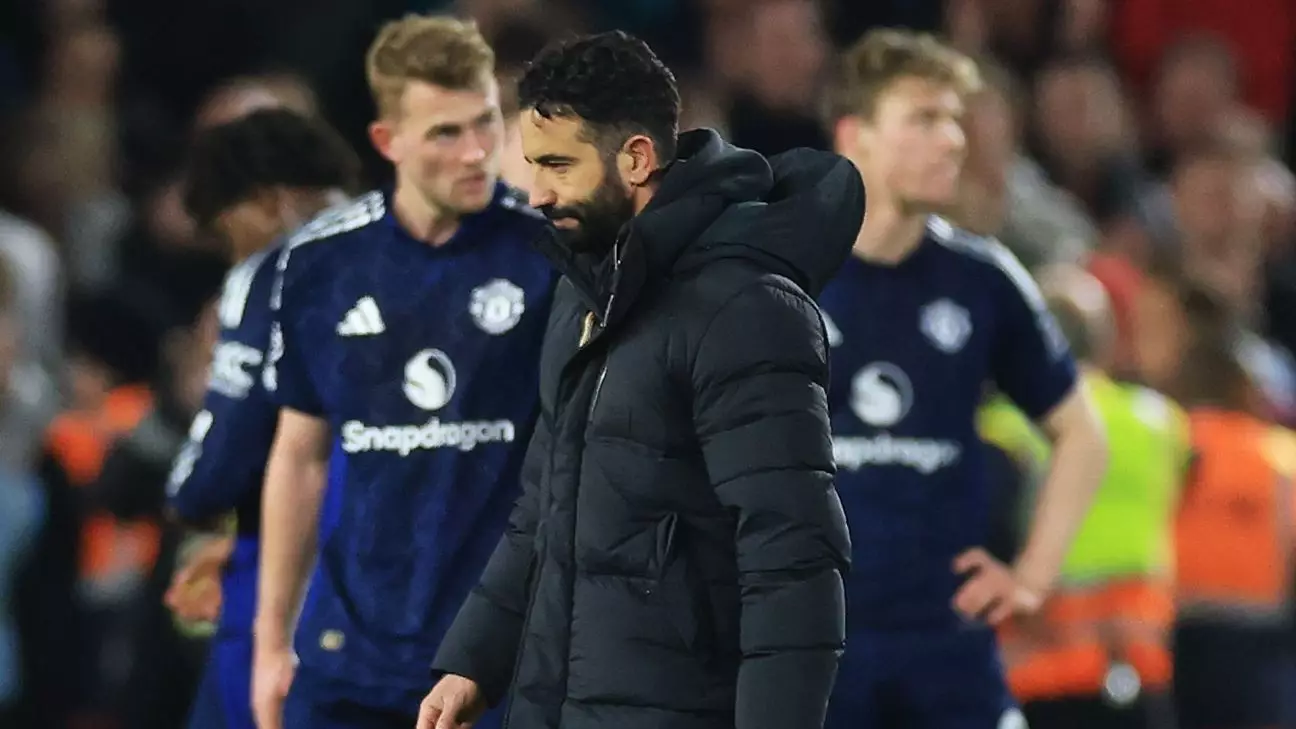The air at Old Trafford has grown dense with expectation and urgency as Manchester United continues to struggle under the management of Ruben Amorim. Only months into his tenure, Amorim’s words ring true: time is a luxury the club can no longer afford. After another disheartening defeat against Nottingham Forest, fans and pundits alike are left to wonder if change is possible or merely a pipe dream.
The loss marked United’s 13th Premier League defeat of the season, closing in on an alarming record of 14. Sitting low in 13th position, the famous club has become a shadow of its former self, reflecting a harsh reality for the supporters who have long witnessed the slide. Amorim’s admission that “In Manchester United, you don’t have the time” signifies an understanding of the unique pressure that comes with managing one of the world’s most storied football institutions. The club’s illustrious history offers little solace for those tasked with its revival; each match adds to the mounting pressure on Amorim to reverse their fortunes quickly.
Player Accountability: The Case of Alejandro Garnacho
In the face of adversity, individual players often bear the brunt of criticism, as seen in the case of Alejandro Garnacho. With six attempts on goal out of 24, he exemplified the team’s frustrating inefficiencies. While Amorim has extended his support for the young Argentine, emphasizing his work ethic and commitment on the pitch, the statistics paint a different picture. Was Garnacho’s performance a reflection of poor individual execution or symptomatic of a deeper malaise within the team?
It’s essential to acknowledge the potential within Garnacho while also recognizing that every shot fired must bear the weight of expectation. If he is to stake his claim as a key player for the club, he must translate effort into results. The “trying too much” label, while somewhat charitable, may not suffice as a pathway to future success. Fans remain invested in understanding whether he has the killer instinct to thrive in high-stakes situations, which has been alarmingly absent this season.
Strategic Missteps: Unpacking Game Tactics
The tactical approach taken by Amorim has come under scrutiny. Despite the claim that United controlled the match against Nottingham, criticism should focus on how quickly they capitulate under pressure. Conceding early, as they did against Forest, plays right into the hands of a well-organized opponent. The strategy appears reactive rather than proactive, with United consistently finding themselves on the back foot.
Moreover, Amorim’s insistence on fast transitions often stands in stark contrast to the team’s execution. The pace of play seems to be lost in translation, as players struggle to adapt to a system that should ideally promote fluidity and creativity. Relying too heavily on individual brilliance without a cohesive plan undermines the team’s ability to function as a unit. It raises questions about whether Amorim has the tactical acumen to galvanize the squad into a cohesive force that can reclaim the glory associated with Manchester United.
The road ahead demands more than just hope for improvement; the Red Devils need a strategic overhaul that can reinvigorate their essence. As Amorim grapples with enormous expectations, the clock ticks ever louder—a stark reminder that in football, the only constant is the relentless quest for victory.

